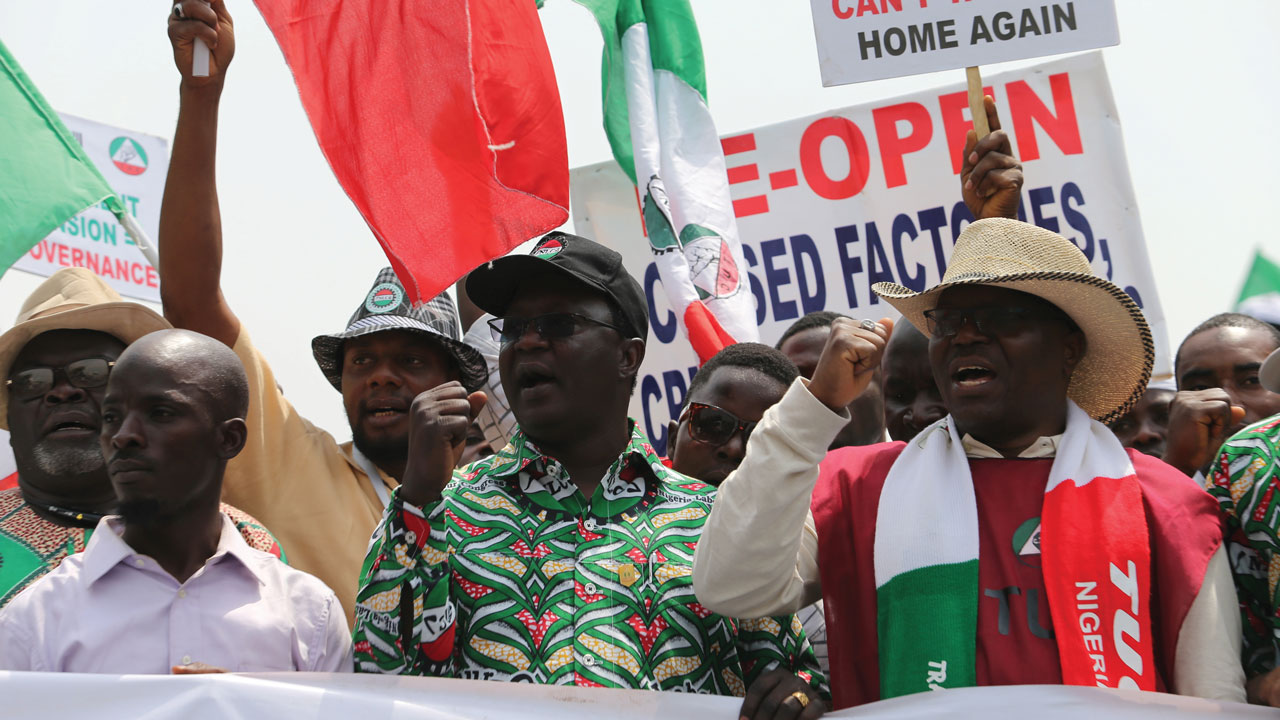
Nigerian leaders reject minimum wage hike plan

Nigerian governors have rejected a deal to raise the minimum wage to 30,000 nairas (72 euro, $82) from 18,000 nairas a month, a move that could trigger fresh labour unrest.
A planned nationwide strike was averted early this month after a negotiating committee made up of union representatives, the government and private sector recommended the pay rise.
President Muhammadu Buhari, who is seeking a second term in presidential polls this February, had said the plan would be put to a parliamentary vote “within the shortest possible time”.
But in a blow to his plans, the 36 state governors rejected the proposal after meeting in the capital Abuja late Wednesday.
Nigeria’s multi-billion-dollar oil wealth is shared among the three tiers of government — federal, state and local governments — under an agreed revenue formula.
Governor Abdulaziz Yari, from northern Zamfara state, spoke on behalf of his colleagues and said most of the states have been struggling to pay current wages despite a huge financial bailout from the federal government.
“We are paying 18,000 nairas but when the president assumed office, about 27 states were not able to pay, not that they chose not to pay.
“So, now you say 30,000 nairas, how many of them can pay? We will be bankrupt. So as Nigerians, we should look at the issues seriously,” he said.
Yari said a committee would be formed by the governors to meet with Buhari resolve the row.
Nigeria is Africa’s leading crude producer, exporting some two million barrels per day, but most of its more than 180 million people live in poverty, partly due to mismanagement and corruption.






